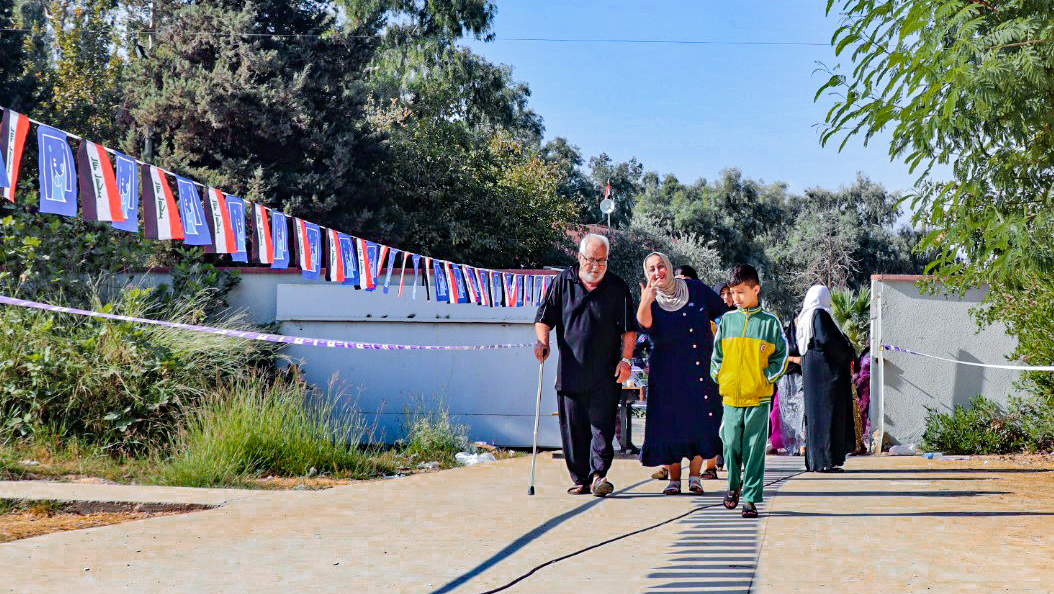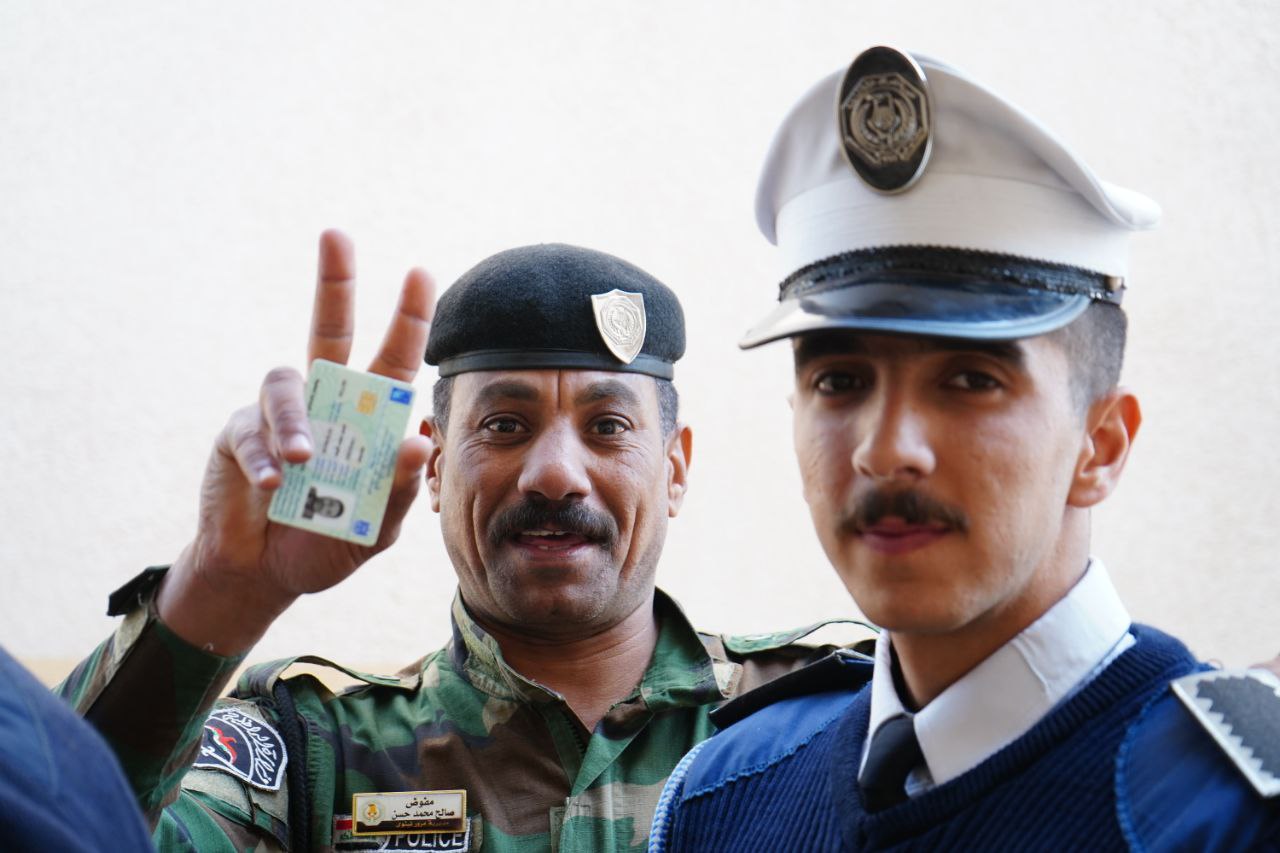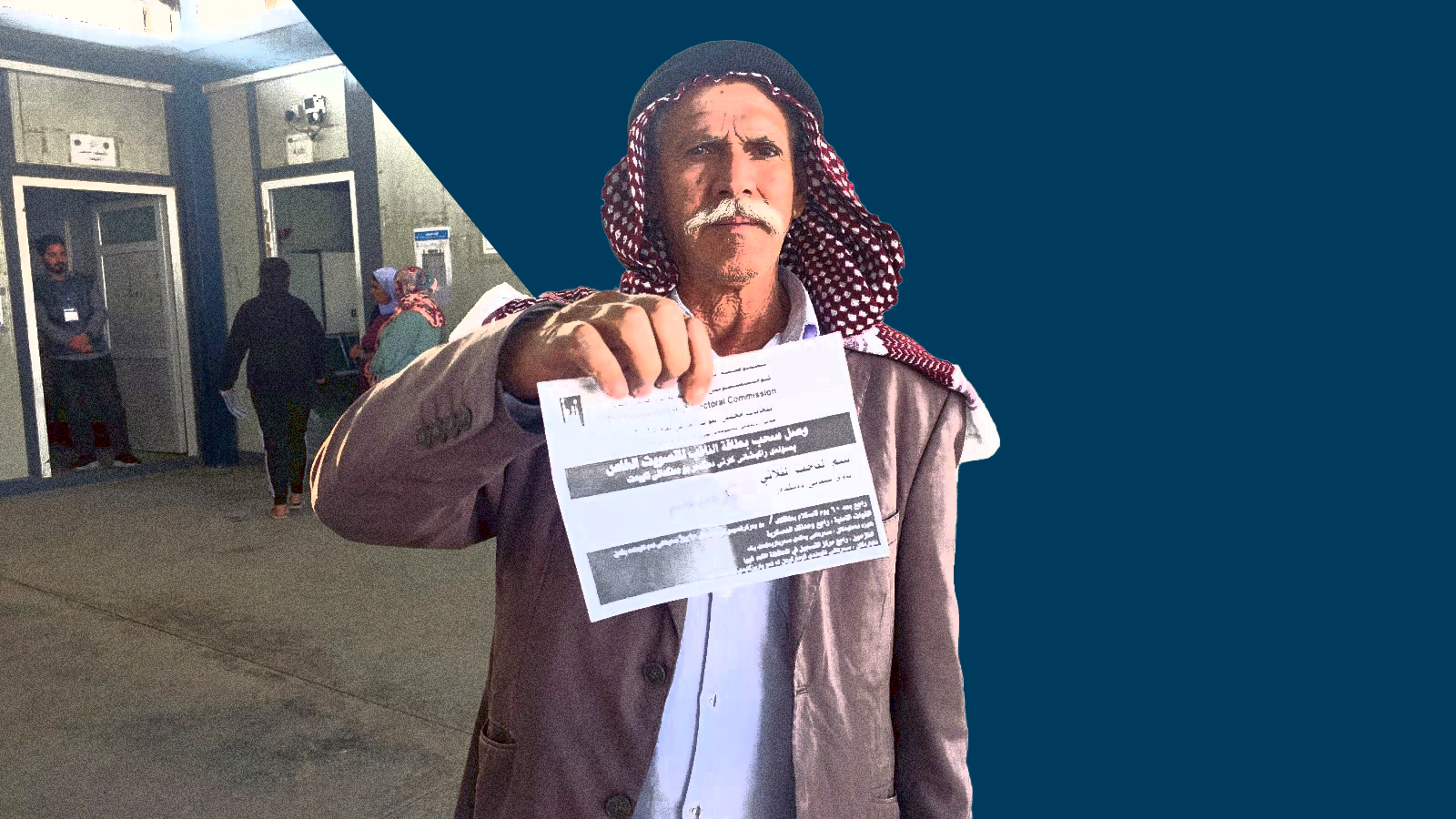The nine candidates who captured Iraq’s minority quota seats collectively received more than 121,000 votes—nearly double the number cast for several minority groups in the previous election.
Final results from the sixth parliamentary elections, held on November 11, 2025, show that candidates from religious and ethnic minorities amassed over 270,000 votes in total. This marks a significant increase compared to the 2021 elections, when they received fewer than 226,000 votes. The number of candidates also dropped from 67 to 53.
Under Iraqi electoral law, nine of the 329 parliamentary seats are reserved for Christians, Ezidis (Yazidis), Sabi’a Mandais, Faili Kurds, and Shabaks. Voters across the country, regardless of ethnicity or religion, are permitted to vote for these quota candidates.
In total, the nine winners collected 121,192 votes—far higher than the 96,760 votes recorded for the winning candidates in the previous cycle.
Christians: A Fierce Contest
Of the nine minority quota seats, five are secured for Christians, winning them with 78,406 votes—an enormous jump from the 46,596 votes that determined the outcome in the prior election.
Christian candidates received a combined 154,227 votes across 19 contenders. This year’s race saw intense competition driven partly by interference from non-minority political parties. In 2021, only 118,227 Christian votes were cast among 34 candidates.
The five Christian seats are located in Baghdad, Kirkuk, Nineveh, Erbil, and Duhok. The Babylon Movement previously held four of these.
Ivan Faiq Yakub Gabro, the current minister of immigration, won 13,137 votes in Baghdad, while Aswan Salim Chaldean won 6,234 votes in Nineveh.
The other three winning Christian candidates in Kirkuk, Duhok, and Erbil ran independently and were indirectly supported by the Kurdistan Democratic Party (KDP).
Sami Oshana of Duhok Christian won the seat with 22,838 votes, while the candidate of Babylon with the support of the Patriotic Union of Kurdistan (PUK) lost with 22,067 votes.
In Kirkuk province, Christian candidate Imad Yohana won 17,680 seats against Babylon's candidate, who had 12,838 votes. In Erbil, the quota seat went to Kaldo Ramzi with 18,517 votes, compared to the defeat of the candidate of Babylon with 13,614 votes.
Christians also got the lion's share in the final provincial councils; they have four seats in four provinces out of the 10 quota seats.
Christianity—recognized in the Iraqi constitution alongside its Syriac language—has faced sharp decline. After ISIS captured Nineveh and parts of Kirkuk in 2014, Christians were given the choice to convert, pay a tax, or flee. Most were displaced. The Christian population has plummeted to around 250,000 from 1.5 million in 2003.

Kirkuk, November 11, 2025: Iraqi parliamentary elections. KirkukNow
Ezidi Vote Doubles
Seven Ezidi candidates competed in this election and collectively received 32,169 votes—more than double their 12,935 votes in 2021.
Khalid Sido Khalidi, an independent candidate supported by the KDP, won the sole Ezidi seat in Nineveh with 9,687 votes. Ezidis also hold one provincial council seat in Nineveh.
Iraq is home to about 550,000 Ezidis, of whom 360,000 remain displaced and more than 100,000 have emigrated. Most Ezidis live in Shingal (Sinjar)—an area devastated by ISIS in August 2014—as well as Sheikhan, Bashiqa, and other parts of the Nineveh Plain.
Sabi’a Mandai (Mandeans) Votes Also Double
The Sabi’a Mandai community saw its turnout increase dramatically as well, collecting 27,457 votes from 14 candidates—up from 12,133 votes across eight candidates in 2021.
Bassam Jasb Zuheri won the Baghdad quota seat for the Sabi’a Mandai with 5,410 votes.
Their population today is estimated between 15,000 and 20,000, down from as many as 100,000 before 2003. Followers are concentrated in Baghdad and Maysan, with additional communities in Basra, Dhi Qar, Kirkuk, and the Kurdistan Region. They hold two provincial council seats—one in Baghdad and one in Maysan.
Faili Kurdish Votes Decline
Faili Kurds, who fielded nine candidates, received 39,055 votes—slightly fewer than the 43,371 votes gathered by 10 candidates in the previous election.
Haider Ali won the Wasit seat with 17,188 votes as an independent supported indirectly by the KDP.
Roughly 800,000 Faili Kurds live in Iraq, primarily in Baghdad, Diyala, and Wasit. They hold two provincial council seats in Baghdad and Wasit. During Saddam Hussein’s Ba’ath regime, Failis suffered deportation and loss of citizenship—a campaign recognized as genocide in 2010.

Nineveh, November 9, 2025: Two security forces voters participate in special vote. Ahmad Bala
Shabak Vote Cut in Half
Shabak voters showed a major drop in turnout. The community’s four candidates gained just 17,158 votes, compared to 39,516 votes from eight candidates in 2021.
Waad Mahmoud Qaddo (Abu Jaafar Shabaki) won the Nineveh Shabak seat with 10,501 votes.
The Shabak population is estimated at 300,000–350,000, composed of both Shiites (60%) and Sunnis. They are concentrated in Bashiqa, Bartella, Hamdaniyah, Telkaif, areas of Mosul, and villages across the Nineveh Plain. They hold one seat in the Nineveh provincial council.
Other Minority Communities
Kakais, Bahá’ís, and Armenians do not have quota seats in parliament. However, some Kakai candidates ran on other party lists and succeeded in winning representation in Nineveh—though this is fewer than the two seats they held in Nineveh and Kirkuk during the 2021 term.
More than 21 million Iraqis were eligible to vote in the 2025 elections, which saw a nationwide turnout exceeding 54 percent.





